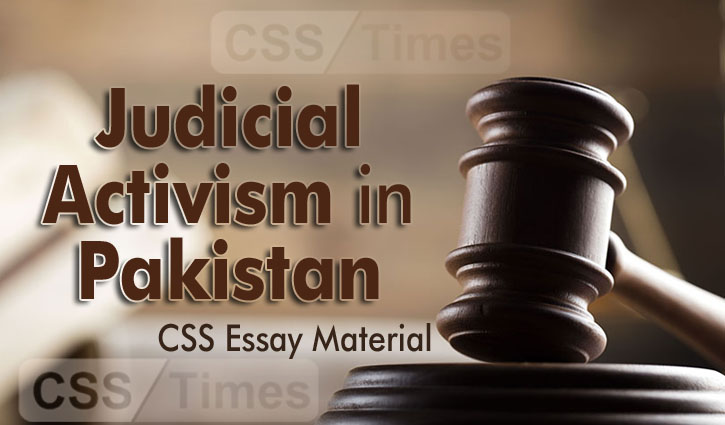Judicial activism’s history and scope
Certain legal circles are showing concerns over the proactive role our judiciary is playing in restoring fundamental rights to the common man, and taking cognizance of corrupt practices in institutions of public importance. This proactive role which is termed as judicial activism has been defined in Black’s Law Dictionary as, “a philosophy of law-making whereby judges allow their personal views about public policy, among other factors, to guide their decisions.” Thus according to them any order or decision which is coloured by a judge’s subjective mind rather than the literal application of law would amount to a legal aberration and is therefore likely to cause miscarriage of justice. But the fact remains that when a judge is engaged in the task of sifting truth from falsehood, his objective and subjective faculties are simultaneously at work, and in respect of most of the questions before him, the bare literal application of law would neither be adequate nor desirable.
